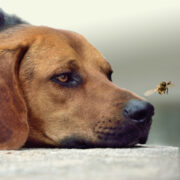Is honey good for dogs? Not only is honey good for dogs, but it’s even better at healing wounds, building a strong immune system, and even treating certain ear infections.
In a peer-reviewed study measuring the effectiveness of medical-grade honey (MCH) in the management of canine otitis externa, a common ear disease in dogs, veterinary dermatologists found some pretty interesting results.
The study, published in Veterinary Dermatology, found that MCH “promoted rapid clinical progress, with 70% of dogs achieving clinical cure between days 7 and 14 and over 90% having resolved by Day 21.”
Just because this study was successful in demonstrating the potential of MGH as an alternative treatment for ear infections, however, doesn’t mean you should grab the honey out of your pantry for a cure. Medical-grade honey is specifically sterilized for medicinal purposes, so put that cute bear-shaped container back on the shelf.
Besides, you should leave this kind of treatment to the professionals. Holistic veterinarian Dr. Katie Woodley explained to Outward Hound:
“When treating ear infections, we do have to be careful with what is being placed in the ears, and the dog must be examined prior to make sure the eardrum is intact and that there isn’t something like a grass seed or other foreign body present that’s causing inflammation.”
Healing Wounds with Honey
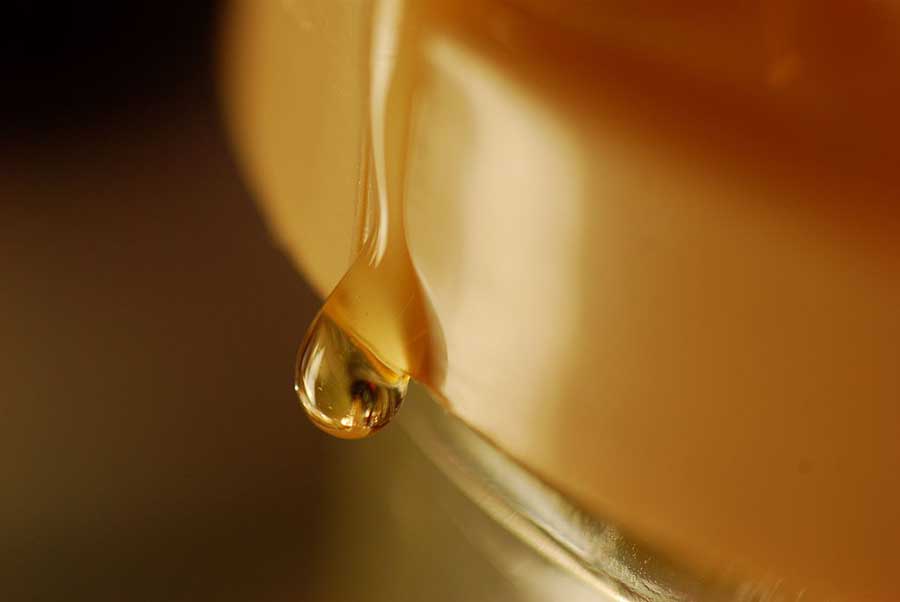
Honey has powerful antimicrobial and antifungal properties. In fact, veterinarians at the University of Illinois Veterinary Teaching Hospital in Urbana keep honey on hand to use in the ER.
According to Dr. Maureen McMichael, honey’s antibacterial properties can clear possible infections by killing the harmful bacteria within the wound bed. The acidity from the honey makes it so the bacteria can’t function.
Killing bacteria isn’t all honey can do for wound care. The topical application of enzyme-rich honey also promotes healing and provides a protective layer over the area, preventing contamination.
Disclaimer: If you are interested in using raw honey for wound care or hot spots, talk to a veterinarian first before slathering your pet’s open wound with the sticky stuff.
Honey for Kennel Cough
When humans get sick with a sore throat and excessive cough, one of the tried and true methods for relief is a teaspoon of honey down the hatch. It’s the same for dogs that have kennel cough or something irritating their throat.
For dogs, DVM Sara Bledsoe of PetMD recommends mixing up to a tablespoon of honey in a bowl of warm water.
Honey for Seasonal Allergies
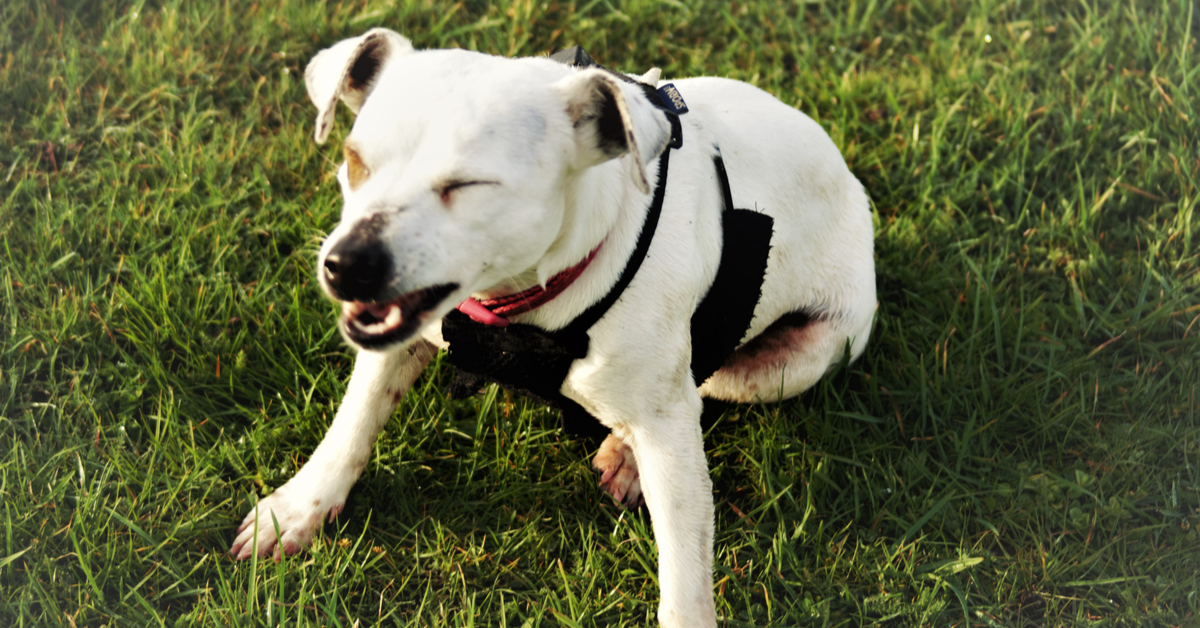
Honey has been used for thousands of years for health due to its various medicinal properties. Raw local honey in particular can be great for environmental allergies. Using local honey is key because contains pollens local to your area that your dog is exposed to.
Here’s how it works: raw local honey introduces tiny amounts of local pollens into your dog’s system. Over time, your dog’s immune system develops immunity to the allergen. Kind of like allergy shots.
This doesn’t mean honey is an instant cure-all, however. According to VetInfo: “Although most dogs do not achieve a complete cure by consuming raw honey alone, a weekly dose of honey should help reduce the clinical signs and help your pet feel a little better during allergy season.”
Talk to your veterinarian about honey and how it might help your dog’s allergies. Keep in mind you will have to start treatment before allergy season. You should not give your dog honey if they have had an allergic reaction to bees or bee stings.
Manuka Honey
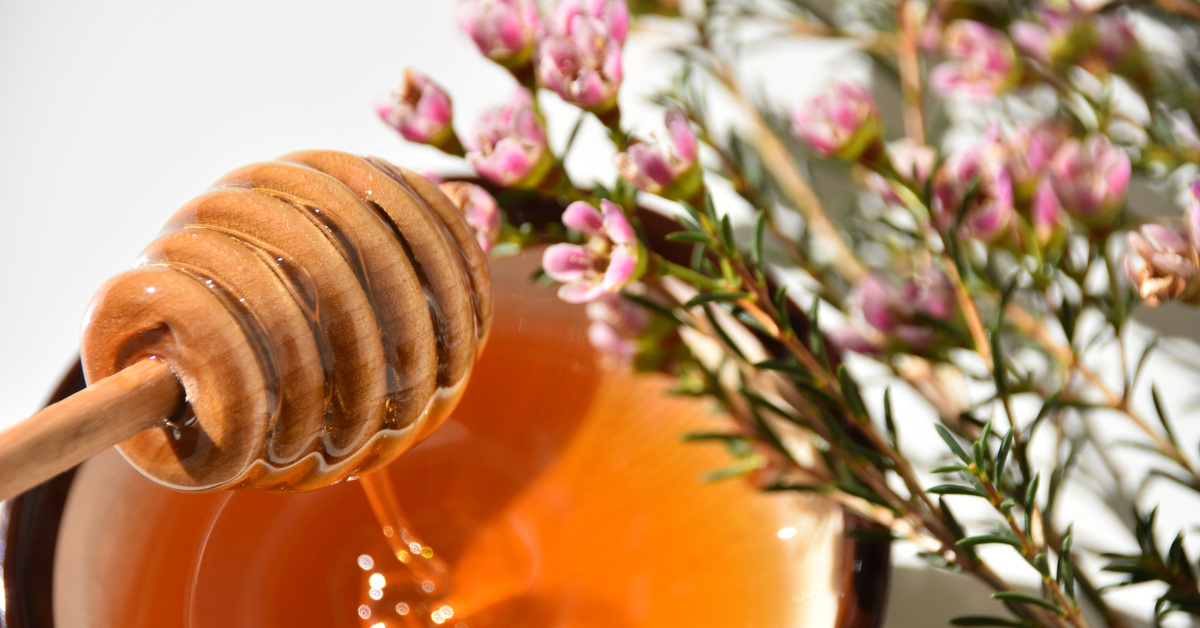
Antioxidant-filled manuka honey is the gold standard when it comes to protecting against bacteria as it has higher levels of antimicrobial activity than other kinds of honey. Manuka honey comes from bees that feed off Manuka tree flowers in New Zealand and Southeast Australia.
In clinical studies, the Veterinary Teaching Hospital at Michigan State University has successfully used manuka honey to treat burn wounds, extensive bite wounds, and other traumatic wounds on adult dogs.
“Manuka honey is powerful because it’s high in phenolic content which has antibacterial properties, and it’s the unique manuka factor (UMF) that’s important,” explained Dr. Woodley.
“The higher the UMF, the higher the concentration of medicinal phenols and other components which gives it the anti-inflammatory and anti-bacterial properties.”
How much honey should I give my dog?

How much honey to give your pooch depends on its weight. When talking to your veterinarian about giving your dog honey, ask them how much is appropriate.
For environmental allergies, Dr. Woodley recommends pet parents give a dosage of 1/8 tsp of local honey per 20 lbs of body weight a day mixed in with their food. A large dog weighing 80 lbs, for example, would get one full teaspoon.
Instead of giving your dog straight honey, you can also use it as an ingredient in dog treat recipes. You can also mix it in with peanut butter, smear some in the compartments of a Nina Ottosson dog puzzle, and give it to them a tasty and rewarding treat-seeking activity.
Dog owners don’t want to overdo it in order to avoid gastrointestinal upset. Be extra careful with small dogs, as honey has high sugar content. Too much of those natural sugars in your dog’s diet is not good for your dog’s health and can cause weight gain, obesity, and tooth decay.
And watch that blood sugar! Do not give honey to diabetic dogs. Avoid giving to puppies as it could cause botulism spores.
Giving Your Dog Honey
Is honey good for dogs? Yes, honey is good for dogs. It’s flavonoid-rich and contains minerals like calcium, magnesium, potassium, and manganese. Feeding honey to your dog is safe for as long as it’s given in small quantities and under the guidance of a veterinarian.
Bee Good
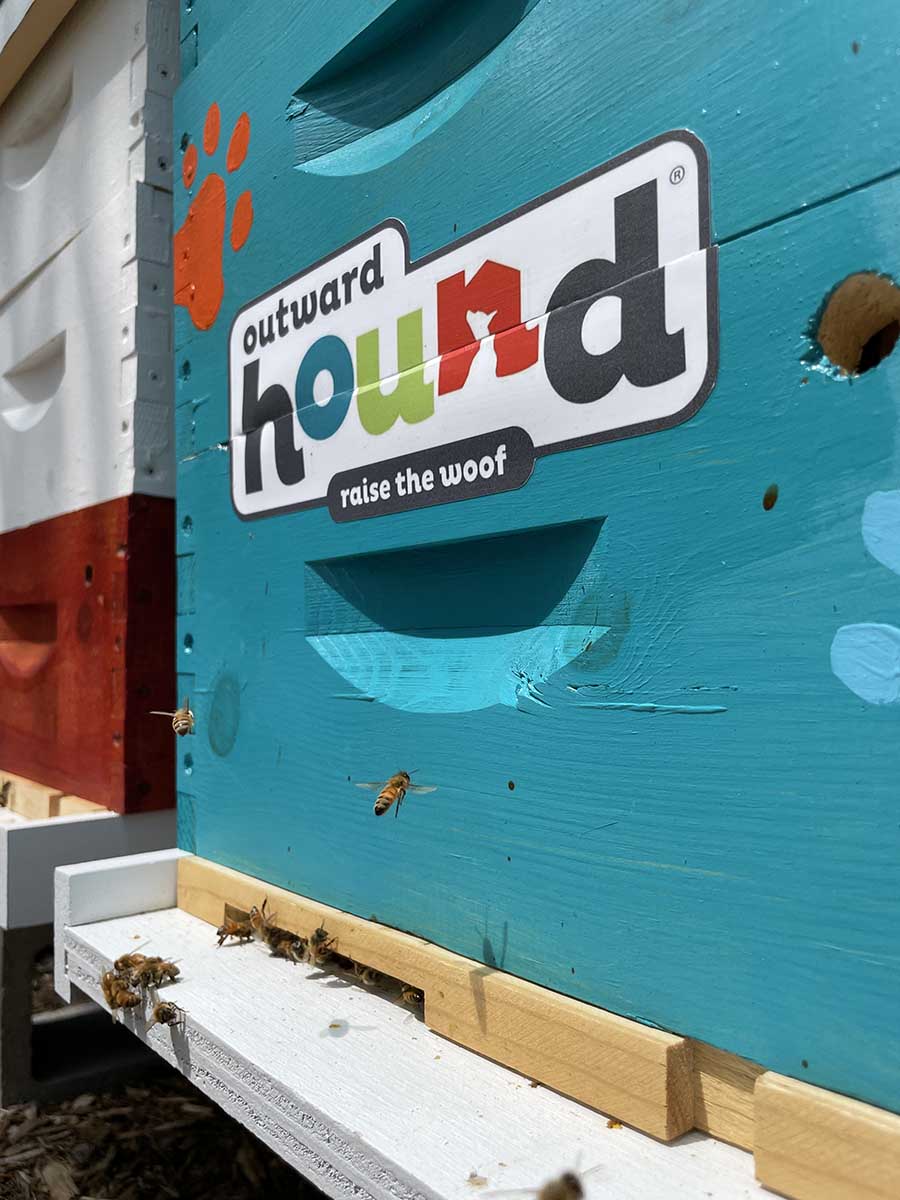
Bees are critical to the health of ecosystems and the global food supply. Outward Hound is supporting pollinator conservation by sponsoring a hive at The Peoples Bees, an organization that advocates for bees as a crucial part of our ecosystem.
The Peoples Bees is on a mission to connect the people to the bees through apiculture, education, and advocacy from Denver, Colorado. Learn more at www.thepeoplesbees.com
